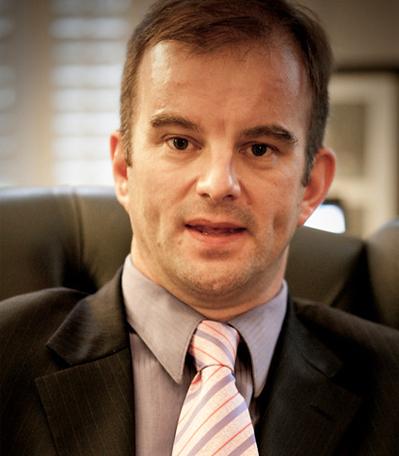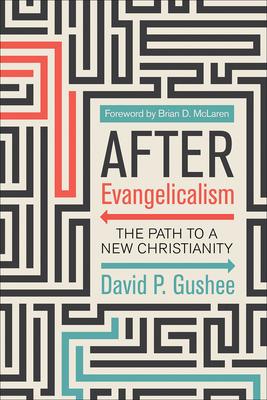
Evangelical academics are excited about Carl R. Trueman’s latest contribution to the journal First Things: “The Failure of Evangelical Elites”. Trueman writes as a Christian intellectual who doesn’t like other Christian intellectuals. In particular, he is mad at Mark Noll (The Scandal of the Evangelical Mind) and George Marsden (The Outrageous Idea of Christian Scholarship).
Trueman once appreciated these giants of evangelical cultural historiography. There was, and is, much to criticize about American evangelicalism. But Marsden and Noll believed that evangelical scholars could find a place at the academic table if they did good scholarship. That might have been true back in the 1990s when their famous critiques of evangelicalism were written, but it is true no longer. These “evangelical elites” were like Friedrich Schleiermacher’s19th century attempt to make religion palatable to its “cultured despisers”.
 Carl R.Trueman
Carl R.TruemanBut Trueman’s beef isn’t really with Noll and Marsden. At least these celebrated scholars embraced classical evangelical orthodoxy. His true scorn is reserved for the current crop of evangelical and post-evangelical scholars (though he doesn’t mention names) who have accepted to rules of intellectual combat established by the woke post-modernists.
Trueman loves the word “woke”, by the way, and uses it repeatedly as a synonym for “politically correct”. No wonder the expression was long-ago abandoned by racial justice advocates; it once meant being awake to the racist contours of American history and the intentional distortions and distractions of political discourse. But Trueman’s real problem is that he is anti-abortion, anti-LGBTQ rights, and adamantly opposed to the thorough re-write of American history that is just getting started.
Evangelicals, as you may have noticed, haven’t fared too well in this historical re-evaluation. It has bloodied and bruised them mercilessly. The truth doesn’t just hurt; if you’ve hitched your wagon to the wrong star, it can kill you.
Trueman thinks a scholar should be able to bash the antiracist movement, LGBTQ rights, reproductive rights activists and just about anything else he dislikes with no meaningful pushback from the academy. Just like back in the old days.
Here’s the guts of his argument:
Our postmodern world sees all claims to truth as bids for power, all stable categories as manipulative—and the task of the academy is to catechize students into this orthodoxy. By definition, such a world rejects any notion that scholarly canons, assumptions, and methods can be separated from moral convictions and outcomes. Failure to conform to new orthodoxies on race, morality, sexual orientation, and gender identity is the main reason orthodox Christianity is despised today. These postmodern tenets rest upon cultural theories that cannot accommodate Christianity, precisely because they underwrite today’s academic refusal to discuss and weigh alternative claims. To oppose critical race theory or gender theory is to adopt a moral position that the culture’s panjandrums regard from the outset as immoral. The slightest hint of opposition disqualifies one from admission to polite society. (emphasis mine)
From “The Failure of Evangelical Elites
Trueman faults Black Lives Matter protestors for ignoring the 171,000 Black babies who are aborted every year. But, as Randall Balmer argues persuasively, pro-life politics has always been a veiled proxy for racism. And the veil is slipping. Most progressive evangelicals and post-evangelicals are willing to give pro-life arguments a respectful listen, but references to 171,000 Black babies demonstrate that Trueman isn’t serious about good faith argument. His conceptual world is falling apart and he’s scared to death. The academy is open to an honest discussion of the ethics of abortion. That subject can be argued pro and con. But when you speak of a six-week fetus as if it were a newborn baby, you’re no longer making an argument; you’re creating a distraction.
Randall Balmer is one of the unnamed evangelicals Trueman has it in for. John Fea (famous for his dissection of Trumpian “court evangelicals”) is another. Critics of Christian patriarchy like Kristin Du Mez and Beth Allison Barr are also in Trueman’s crosshairs. David Gushee, the ex-Southern Baptist ethicist, resides near the top of the hit list. For the past two decades, these scholars (and dozens of others I haven’t named) have been re-evaluating their evangelical heritage in increasingly harsh terms. Trueman thinks they lack empathy. But this is about an upsurge of urgency, not a failure of empathy.
The concluding words of Gushee’s After Evangelicalism: The Path to a New Christianity, trace the arc of his personal journey.

“As a doctoral student I saw the anti-Semitism of historic Christianity contribute to the Holocaust, and I became a fierce opponent of anti-Semitism.
As a junior scholar I saw fundamentalist Southern Baptists drive women out of their teaching and ministry posts, and I became a fierce opponent of Christian patriarchalism.
As a midlevel evangelical ethicist, I saw our country descend into authorized torture, and I became a fierce opponent of the degradation of Muslim men’s bodies in the name of national security.
As a seasoned scholar, I saw the harm that my own teaching had done to gay Christians, and I repented toa become a fierce opponent of antigay traditionalist faith.
And when exactly did I see that white American Christianity was born of heresy, and that my polite center-left self has been complicit in it? About five minutes ago. More precisely, about the day after Donald Trump’s election and the great reveal of the evangelical 81 percent.
It must be that dealing with white European Christian racism is the most threatening challenge of all. It must be that the horror is too great, the shame too awful, for many of us white guys to want to look over in that direction if we can avoid it.”
Thus far, evangelicals and conservative Catholics like Trueman have been able to avoid looking at these issues. They aren’t sure which horrifies them the most: that their tribe is over the moon for Trump, or that former allies are abandoning evangelicalism like rats fleeing a sinking ship.
But the old fortress of evangelical Christianity can no longer be defended by evidence and argument. It can only be abandoned for higher ground.
As Gushee’s mea culpa makes clear, there is no easy way to abandon the evangelical enterprise in its entirety. That’s why so many of us put off the dreaded day until the cruel march of history forced our hand.
I mention Gushee’s personal history, because I think it is representative in many respects. The decision to leave evangelicalism is not the matter of a single moment; it’s a process. And it’s hard. And agonizing. It’s not something we want to do. And caving to the zeitgeist has nothing whatsoever to do with it. We get to know people who have been damaged by people like us. We learn to see the world through their eyes. Our hearts break. We repent and make the necessary adjustments to our worldview. Then we meet another inconvenient person, and the process repeats.
Men like Trueman have staked a professional claim to conservative religion. Remaining means they can’t get too close to members of the LGBTQ community. They can’t listen to women (except those who are down with patriarchy). They can’t get too close to Black people (unless they are card carrying Republicans). They can’t sit down with immigrants, documented or otherwise, or their kin. They can’t listen carefully to women who are passionately committed to reproductive rights. They must remain within the bubble. They must defend the bubble. Only so can they maintain the necessary degree of social ignorance.
That too is painful. Especially if, like Trueman, you see Donald Trump for who he is. You despise what most evangelicals are doing and saying; and yet, you must present yourself to the world as their champion.
None of this can be easy. We post-evangelicals know. We’ve been there. We’ve tried to do that. We couldn’t. And once we finally quit trying to square circles and make 2+2=5 life got so much easier. Well, maybe not easier, but better. Jobs are lost. Relationships broken. Careers adrift. But we are alive. We can breathe. Hallelujah!
And isn’t that what God wants for us all?
- Carl Trueman defends a sinking ship
- Southlake school official urges teachers to put in a good word for the holocaust.
- “Woke” has evolved into a racial epithet.
- Jon Gruden is the face of white America
- Explaining the white opposition to reparations.
